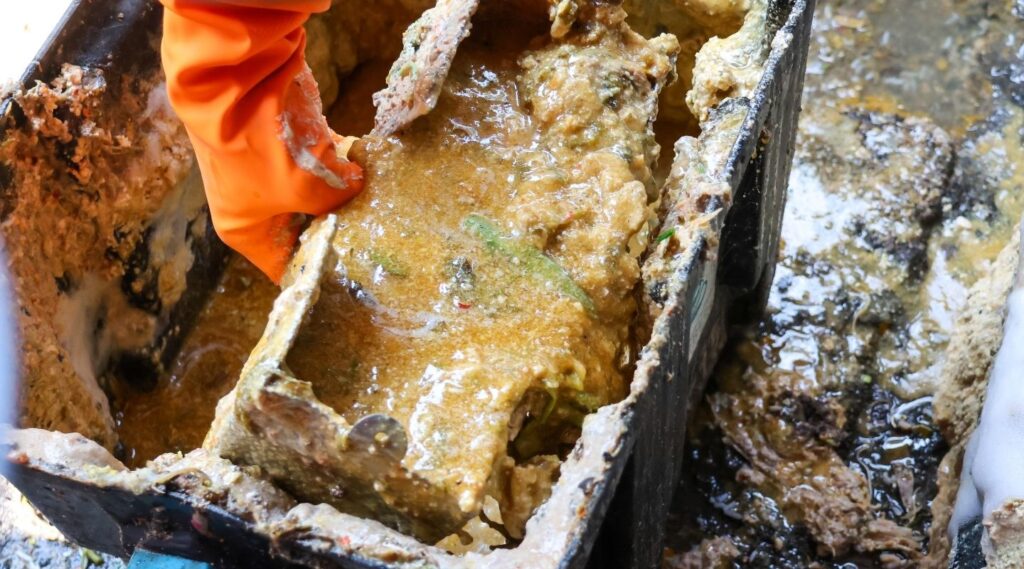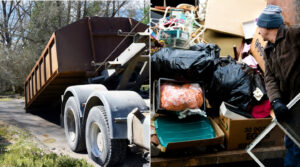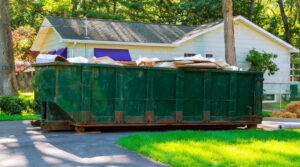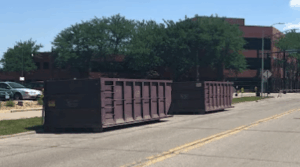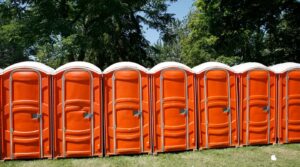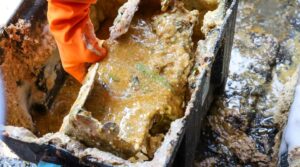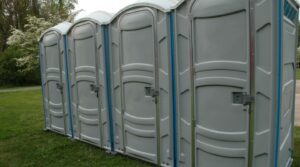In bustling culinary hubs like Des Moines, Ankeny, Waukee, West Des Moines, IA, or the nearby areas, restaurant kitchens never truly rest. Behind the sizzling pans and clinking dishes, an unseen system quietly manages the heart of kitchen hygiene: the grease trap. Over time, even the most efficient kitchen can face unpleasant surprises if this system isn’t maintained properly.
A commercial kitchen grease trap is more than just a plumbing component. It’s a critical line of defense against plumbing clogs, foul odors, and costly fines from local health departments. Regular maintenance isn’t simply about compliance, but also about preserving the flow, function, and reputation of your food service establishment.
If you manage a restaurant, café, or catering business in Iowa, understanding the basics of professional grease trap cleaning in Ankeny, West Des Moines, Waukee, Des Moines, and the surrounding areas correctly can protect both your bottom line and your peace of mind.
Why Regular Grease Trap Cleaning Matters
Proper Iowa grease trap maintenance isn’t just good practice, but a dire necessity. Here’s why every food service operator should make it a priority.
1. Prevents Clogs and Backups
Every day, commercial kitchens generate FOG (fats, oils, and grease) that sneak down the drain. Without timely cleaning, these accumulate inside the grease trap and eventually harden, obstructing wastewater flow. When this happens, kitchen sinks back up, dishwashers stall, and floors flood — all during peak service hours.
Regular grease trap cleaning in Des Moines, Ankeny, or the nearby areas helps keep your plumbing system flowing freely and eliminates emergency downtime.
2. Meets Iowa Health & Environmental Regulations
The Iowa Department of Natural Resources (DNR) and local municipalities enforce strict regulations regarding restaurant plumbing compliance in Iowa. Businesses need to routinely schedule grease trap cleaning sessions to prevent FOG from entering the public sewer system.
Neglecting routine cleanings can lead to violations, fines, and even temporary shutdowns.
3. Extends Equipment Life
Your grease interceptor isn’t built to last forever — but with proper care, it can serve you well for years. Scheduled grease interceptor cleaning removes corrosive buildup that damages internal walls and baffles, extending the life of your plumbing infrastructure and reducing repair costs.
4. Eliminates Odors
Nothing ruins a guest’s dining experience faster than the faint smell of rancid grease wafting from the kitchen. Accumulated waste inside grease traps can release sulfuric gases and organic odors over time. Thorough grease trap pumping and inspection eliminates odor-causing bacteria and restores a fresh, sanitary environment — vital for both employee morale and customer satisfaction.
Preparing to Clean a Commercial Grease Trap
Before you begin cleaning, preparation is everything. A smooth and safe process starts with readiness and caution.
1. Gather Essential Tools
Cleaning a grease trap effectively requires a few essentials. Here’s a quick reference table for commercial kitchens in Iowa:
| Tools & Equipment | Purpose |
| Protective gloves & apron | To ensure safety from grease and chemicals |
| Scraper & scoops | For removing solid FOG buildup |
| Wet/dry vacuum | To extract wastewater and sludge |
| Measuring stick or gauge | To record grease depth before cleaning |
| Sealable containers | For collecting removed grease safely |
According to the leading grease trap cleaning specialists in West Des Moines, IA, restaurants working with professionals won’t need to worry about tools, as a licensed team will always bring advanced pumping equipment, disposal units, and protective gear for safe, compliant service.
2. Ensure Safety First
Always ensure that all electrical appliances near the grease trap are switched off. Ventilate the area to prevent exposure to gases or fumes. Most importantly, you need to confirm that waste disposal complies with Iowa health department grease trap rules — grease cannot simply be thrown away or poured down a drain.
Step-by-Step: How to Clean a Commercial Grease Trap in Iowa
Whether your establishment is in Ankeny, Waukee, Des Moines, or West Des Moines, IA, these steps outline the professional approach to maintaining a clean and compliant grease trap.
Step 1: Locate and Open the Trap
Find the grease trap, typically installed under the kitchen sink or underground outside larger facilities. Loosen the lid carefully to prevent damage to gaskets or seals. Professionals use specialized lifting tools to safely remove heavy trap covers without spilling contaminants.
Step 2: Measure and Record Grease Depth
Before cleaning begins, it’s essential to measure the thickness of the grease layer using a measuring stick. This reading can help track how quickly grease accumulates, a valuable data for scheduling regular grease trap cleaning service in Iowa. Consistent inspections can help ensure you don’t wait too long between pumpings.
Step 3: Remove Grease and Solids
Using industrial vacuum pumps, professional grease trap cleaners extract all floating grease, solids, and wastewater from the tank. This step also includes removing compacted food particles and sludge at the bottom. For large establishments, our trucks are equipped with advanced suction systems capable of handling heavy FOG buildup without disrupting business operations.
Step 4: Scrub and Rinse
Once the trap is empty, its baffles and walls are scrubbed to remove stubborn residue. A clean water rinse ensures every component is free from grease films. Professionals often use eco-conscious cleaning agents to promote eco-friendly grease disposal, which is a key priority across Iowa’s food industry.
Step 5: Reassemble and Test
After thorough rinsing, the cover is reinstalled, ensuring airtight seals. The trap is then tested for leaks and flow efficiency. Clean records are maintained, which is an important element for restaurant plumbing compliance in Iowa.
Quick Reference: Grease Trap Cleaning Checklist
| Step | Task | Frequency |
| 1 | Measure grease depth | Before each cleaning |
| 2 | Pump and remove waste | Every 1–3 months |
| 3 | Inspect baffles and seals | Every service |
| 4 | Record service logs | Every cleaning cycle |
| 5 | Schedule next cleaning | Based on FOG buildup |
(Note: Frequency may vary based on kitchen volume and trap size. For accurate scheduling, consult a professional like Waste Solutions of Iowa.)
Why Choose Waste Solutions of Iowa for Commercial Grease Trap Cleaning
When it comes to grease trap cleaning in Ankeny, Des Moines, Waukee, West Des Moines, IA, or the surrounding locations, only a few names carry the reliability and reputation of Waste Solutions of Iowa. With a deep-rooted commitment to sanitation excellence, we’ve built trust across Iowa’s hospitality and food service sectors.
Here’s what sets us apart:
1. Certified and Compliant Services
Our crew understands Iowa’s environmental and municipal regulations inside out. Our licensed technicians ensure each cleaning and disposal process aligns with local health codes and environmental guidelines.
2. Advanced Equipment and Technology
From industrial pumping trucks to real-time tracking software, WSI uses advanced technology to deliver consistent and efficient service. Our tools minimize downtime, ensuring your kitchen operations run smoothly.
3. Scheduled Maintenance Programs
We offer ongoing grease trap maintenance programs that are tailored for restaurants, cafeterias, and commercial kitchens. With our scheduled pumping and inspections, businesses can avoid unexpected blockages and stay in compliance effortlessly.
4. Eco-Conscious Waste Disposal
Sustainability is part of WSI’s DNA. We use eco-friendly grease disposal practices, responsibly handling kitchen wastewater to reduce environmental impact while protecting Iowa’s water systems.
5. Serving All Major Iowa Communities
From Ankeny to Des Moines, Waukee, and West Des Moines, WSI’s service network ensures prompt response and consistent quality, no matter where your business operates.
Keeping Iowa’s Kitchens Flowing Smoothly
Clean, efficient kitchens are the lifeblood of Iowa’s vibrant dining scene. Behind every successful restaurant lies a network of systems, from waste management to plumbing, that must work in harmony. Proper and routine commercial kitchen grease trap cleaning not only protects your property but also protects public health and your business’s reputation.
When the task feels overwhelming or too time-consuming, turning to credible professionals like Waste Solutions of Iowa can make all the difference in the world. Our team combines experience, compliance, and environmental responsibility to keep your business running smoothly, so you can focus on what you do best: serving great food.
Whether it’s grease trap cleaning in West Des Moines, IA, Waukee, Des Moines, Ankeny, or any of the surrounding locations, our reputation for reliability and thorough service continues to make us Iowa’s preferred choice for sanitation and waste management solutions.
Ready to Protect Your Kitchen and Your Compliance?
Grease traps may be out of sight, but they should never be out of mind. Partnering with Waste Solutions of Iowa can help ensure your restaurant’s plumbing system stays clean, compliant, and fully functional year-round.
Schedule your next grease trap cleaning service in Ankeny, Des Moines, Waukee, West Des Moines, IA, and the surrounding areas with us at (515) 750-2340. Keep your kitchen running at peak performance: safely, sustainably, and professionally.

